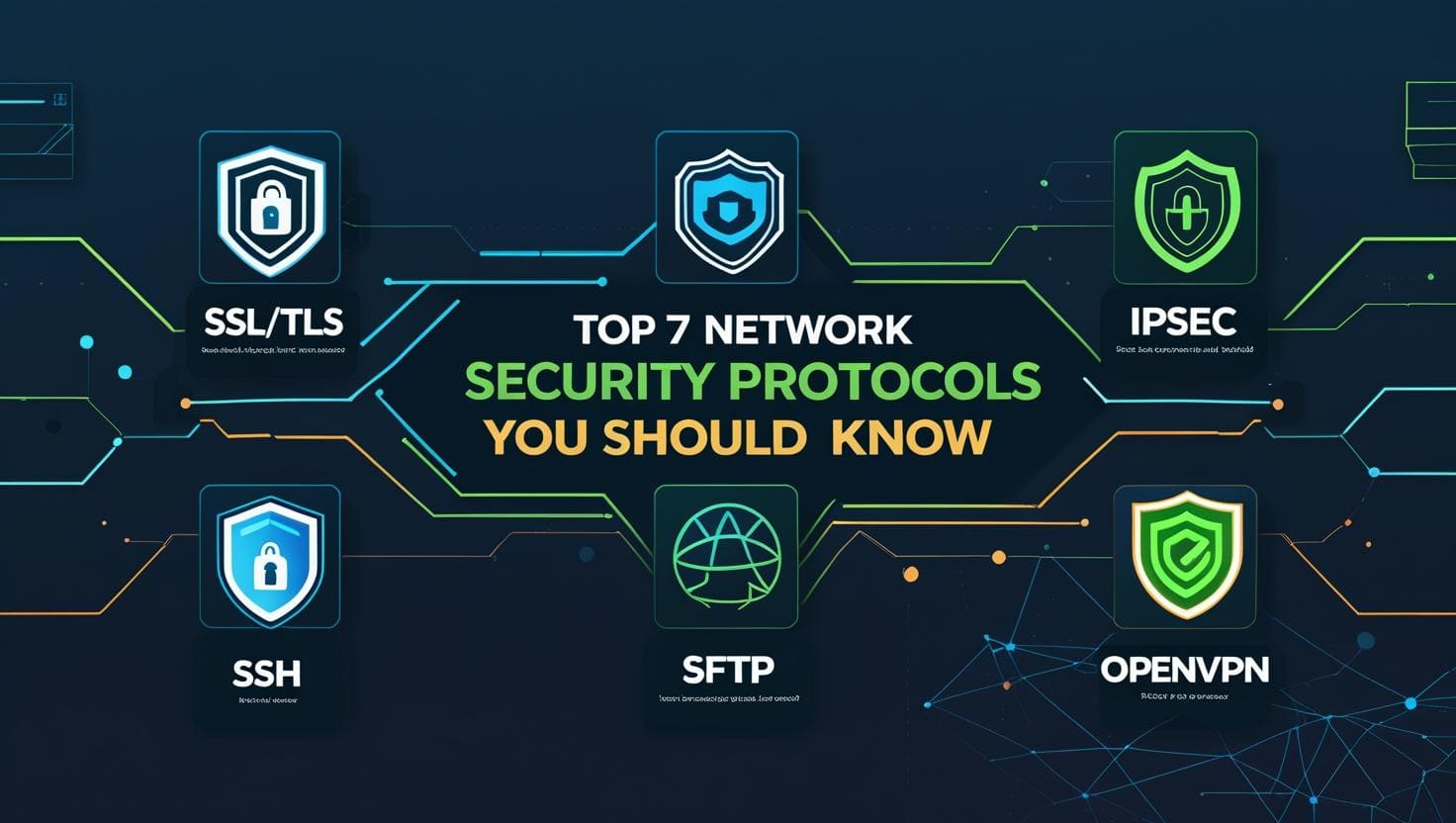
Due to the ongoing evolution of cyber threats, there has never been a greater need for experts who can manage, secure, and safeguard networks. The goal of the Network Security Generalist Certification is to give candidates a thorough and complete understanding of the fundamentals of network security.
With this certification, you can aim to work with market-leading tools (Palo Alto’s ecosystem controls 1/3 of the global network security market). For those individuals wishing to advance their network security expertise or break into the field of the cybersecurity industry, this certification is a very crucial first step.
This article breaks down everything you need to know about the Palo Alto Networks Certified Network Security Generalist Certification, like its exam format, syllabus, costs, salary expectations, job roles, and even how it compares to other popular certs.
What is the Network Security Generalist Certification?
This Network Security Generalist Certification essentially validates knowledge and understanding of all products and services in the Palo Alto Networks security solution and entry-level maintenance, configuration, installation, and deployment of every one of these products associated with the above purpose.
The primary objective is to validate knowledge and understanding of all products and services in the Palo Alto Networks Network Security solution, their use cases, and how they apply to an existing organization and the potential crisis that they may face. It also validates their ability to use, maintain, and configure network security products at an entry level
It also certifies their strength in performing basic network security product installation and deployment. Unlike vendor-neutral certs, it focuses on hands-on expertise with Palo Alto’s tools, which control 33% of the global network security market.
Whether you’re planning to work with hardware-based NGFWs, virtualized firewalls like VM-Series, or cloud-native Prisma products, this certification lays a strong foundation.

Exam Details
1. Exam Format: Online exam with multiple-choice and scenario-based questions
2. Cost: USD 200 (subject to change)
3. Duration: 90 minutes
4. Passing Score: 70% or above
5. Number of Questions: 60 multiple-choice questions
Target Audience
This exam is designed for security and network professionals who are deploying and managing Palo Alto Networks solutions, Next-Generation Firewalls (NGFWs), Cloud-Delivered Security Services (CDSS) subscriptions, and Secure Access Service Edge (SASE) products like Prisma Access, Enterprise Browser, and Prisma SD-WAN.
It also involves management platforms such as Strata Cloud Manager (SCM). This exam targets specialists tasked with securing and maintaining connectivity across hybrid data centers (on-premises, public/private cloud), branch offices, campuses, and remote user access (client/proxy-based, Enterprise Browser, RBI).
IoT/OT ecosystems (IoT, IoMT, operational technology) and data governance for SaaS applications, cloud access, and data loss prevention (DLP) are also included. Ideal candidates oversee end-to-end network security, infrastructure resilience, and compliance in complex enterprise environments.
Exam Syllabus
Here is a table with the weightage and domains, followed by a brief explanation of each:
| Domain | Weightage |
|---|---|
| 1. Network Security Fundamentals | 16% |
| 2. NGFW and SASE Solution Functionality | 18% |
| 3. Platform Solutions, Services, and Tools | 18% |
| 4. NGFW and SASE Solution Maintenance and Configuration | 19% |
| 5. Infrastructure Management and CDSS | 15% |
| 6. Connectivity and Security | 14% |
1. Network Security Fundamentals (16%)
This domain focuses on the core concepts of network security. It includes understanding the application layer inspection for Strata and SASE products, differentiating between slow and fast paths for packet inspection, and using decryption methods like SSL Forward Proxy and SSH Proxy. It also covers applying network hardening techniques such as Content-ID, Zero Trust, and user/device identification.
2. NGFW and SASE Solution Functionality (18%)
This section addresses the functionality of various Palo Alto Networks products like Cloud NGFWs, PA-Series, and VM-Series firewalls. It also covers Prisma SD-WAN and Prisma Access for remote network configuration, security, and monitoring. Understanding how to configure and manage security policies, high availability, and logging for these solutions is key.
3. Platform Solutions, Services, and Tools (18%)
This domain explores the Palo Alto Networks NGFW and Prisma SASE products for enhancing security efficacy. Topics include the creation of security and NAT policies, configuring Cloud-Delivered Security Services (CDSS), and using features like User-ID, App-ID, and decryption. It also covers AIOps integration with best practices and the use of dashboards for efficient management.
4. NGFW and SASE Solution Maintenance and Configuration (19%)
In this area, candidates will learn how to maintain and configure various Palo Alto Networks products such as hardware firewalls, VM-Series, and Cloud NGFWs. The focus is on security policy management, profile configuration, updates, upgrades, and monitoring for both Prisma SD-WAN and Prisma Access.
5. Infrastructure Management and CDSS (15%)
This domain includes maintaining and configuring Cloud-Delivered Security Services (CDSS) and IoT security. It covers security policies, data encryption, and access control, as well as the management of Enterprise DLP and SaaS security. Additionally, it includes configuring Strata Cloud Manager (SCM) and Panorama for network security environments.
6. Connectivity and Security (14%)
This section focuses on maintaining the security of on-premises, cloud, and hybrid networks through network segmentation and security policies. It also includes ensuring secure connectivity for remote users by configuring remote access solutions, adjusting security policies, and tuning network security, with an emphasis on monitoring and logging.
Certification Prerequisites
The following are the main prerequisites:
1. Should have prior experience in cybersecurity roles, such as through a Cybersecurity Apprenticeship or experience as a Cybersecurity Practitioner.
2. A basic understanding of networking, IT infrastructure, and security protocols.
3. Experience with networking tools, firewalls, and intrusion detection systems would also be highly beneficial.
Books & References for Preparation
Palo Alto Networks offers a wide range of training materials, including foundational courses, hands-on labs, and practice exams. Candidates should start by exploring introductory content on network security concepts and gradually progress to more advanced topics related to Palo Alto Networks’ solutions.
For optimal exam preparation, it’s crucial to leverage these official resources, including Palo Alto Networks online training and certification courses. Hands-on labs for real-world experience are also crucial. Official study guides and practice exams are also very significant while pursuing this certification.
Network Security Generalist Certification vs Competitors
The following is a brief comparison with its competitors;
| Aspect | Palo Alto NSG | Cisco CCNA |
|---|---|---|
| Focus | Network Security | Networking Fundamentals |
| Cost | $200 | $300 |
| Key Skills | Cloud NGFW, SASE Policies | Routing, Switching |
| Target Roles | Security Engineer | Network Admin |
If you wish to get online training for more certifications, check out our Palo Alto courses. Contact learner advisors to know more!
Certification Job Roles
A network security generalist is responsible for implementing security measures across network infrastructures. This includes configuring firewalls, intrusion detection systems, VPNs, and ensuring overall network resilience against cyber threats.
The following is a salary table specifying the salary drawn by the people with this cert
| Role | India (₹) | USA ($) |
|---|---|---|
| Security Analyst | 8L | 85k |
| Network Security Engineer | 9L | 90k |
Is It Worth It?
Yes. With a 4.8 million global workforce gap in cybersecurity, this certification opens doors to high-demand roles. Palo Alto’s market leadership ensures skills remain relevant, while salaries for certified pros outpace non-certified peers by 15-20%.
By earning this certification, you'll position yourself as a knowledgeable professional capable of securing complex network infrastructures. It opens entry-level to mid-level roles in cybersecurity and network security, offering a competitive edge in the job market. This improves your employability and brings promotions and recognition your way.
Toolkit of a Generalist
As a Network Security Generalist, your daily toolkit includes some of the most powerful platforms in the industry. You'll work with Panorama for centralized firewall management and Strata Cloud Manager (SCM) for streamlined oversight of cloud-based deployments. Tools like Prisma Access and Prisma SD-WAN.
Cloud NGFW, VM-Series, and CN-Series firewalls provide robust protection across hybrid environments. You’ll also tap into Cloud-Delivered Security Services (CDSS) for advanced threat prevention, and integrate App-ID, User-ID, and Content-ID technologies to fine-tune access and control.
These tools are the backbone of modern network defense, and mastering them sets you apart as a versatile, hands-on cybersecurity professional.
Summary
The Network Security Generalist Certification is a key credential for individuals seeking to enter or advance in the network security field. With its focus on the essential aspects of securing networks, understanding security protocols, and managing security incidents, this certification offers a comprehensive introduction to a dynamic and high-demand career path.
Cybersecurity jobs will grow by 32% through 2032 (BLS), with Palo Alto skills at the forefront. The combination of foundational knowledge, hands-on skills, and industry recognition makes this certification an excellent investment for anyone looking to thrive in the cybersecurity space.

Amar Singh is a senior security architect and a certified trainer. He is currently working with a reputed organization based out of India. His accomplishments include CCNA, CCNP Security, CEH, Vmware, Checkpoint and Palo Alto Certifications. He is holding more than 12 years of experience in Network security domain. In his career he has been ...
More... | Author`s Bog | Book a MeetingFAQ
Comments (0)
Popular posts


What are the Different Types of Network ...
20 Jan 2026
What is the Syllabus for CCNA ...
20 Jan 2026
CCNA Exam Fees and Expenses Breakdown
25 Aug 2025
Transmission Media and Its Types in ...
20 Jan 2026Recent posts

What is the Syllabus for CCNA ...
20 Jan 2026
What is Switching and How Does it Work?
20 Jan 2026
Transmission Media and Its Types in ...
20 Jan 2026
What are the Different Types of Network ...
20 Jan 2026
What is a Hacker and How many types of ...
6 Jan 2026Upcoming batches
Contact learning advisor












